|
In my prayer life recently, God has been speaking to me a lot about obedience. Obedience to Him, to my family, to my job, to my responsibilities. Perhaps it is because I’m not very good at some of my responsibilities, or maybe it is a call to become more in tune with and to pray for God’s will.
In today’s Gospel (Mark 1:40-45), Jesus heals a man who comes to him asking to be cleaned of his leprosy. Upon healing him completely, Jesus says, “See that you tell no one anything, but go, show yourself to the priest and offer for your cleansing what Moses prescribed; that will be proof for them” (Mark 1:44). Instead, the man “began to publicize the whole manner” where it made it “impossible for Jesus to enter a town openly” (Mark 1:45). How often are we disobedient like this man? How often has Jesus told us something that we missed completely? How often have we placed our desires and actions above what God wills for us? By his choice to disobey Jesus, instead of exalting God, the healed man exalts himself. The Catechism tells us that “sin sets itself against God's love for us and turns our hearts away from it” and that sin is “opposed to the obedience of Jesus.” When the healed man ignored Jesus’ directions, it furthered him from fully understanding God’s love and mercy for him. For us, too, when we sin and choose to follow our will over the Lord’s, we distance ourselves from God’s love. How can we know God’s will for us? It is not always so easily stated to us as it was to the man who was healed of his leprosy. To know God’s will, we must pray with open and patient hearts. Pope Francis recommends that we pray for the desire to follow God’s will, to know his will and to follow it. The saints are also great models of teaching us to pray and love God’s will for us. They are in complete union with Jesus in heaven because they learned to desire, love, and follow God’s will for them throughout their earthly lives. Look to any saint, and they will show you obedience. For example, St. Maximilian Kolbe was martyred, taking the place of a man who was to be killed in Auschwitz. Before that, his writings show that his prayer life was repeatedly focused on knowing the will of God. St. Maximilian Kolbe said, “Obedience is the one and the only way of wisdom and prudence for us to offer glory to God... Let us love our loving Father with all our hearts. Let our obedience increase that love, above all when it requires us to surrender our own will. Jesus Christ crucified is our sublime guide toward growth in God’s love.” St. Maximilian Kolbe’s words and sacrifice point us towards obedience, and teach us that obedience helps us to grow in God’s love. So perhaps my prayers that are revealing obedience as a theme are leading me to stretch my heart to know and share God’s love. Through obedience, I can know Christ’s peace and mercy—the same love he felt when the man with leprosy came to him; the same love he felt when he died on the cross. It is my prayer that as the desire for obedience touches my heart, you too may know the love and joy that comes from asking God to desire his will, know his will, and follow his will. Questions for Reflection: What are some ways you can grow in obedience to God’s will this year? Are there any saints who inspire you by their willingness to follow Christ? **This post was originally published on 1/11/2018**
0 Comments
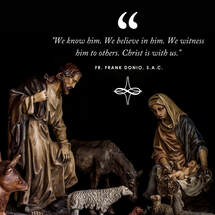 Christmas approaches. We are nearly through our Advent waiting. What has this time been for us? As we enter the joyful season of celebration of the Incarnation, we have an opportunity to embrace the humble simplicity of the scene. Only the shepherds were made aware on that night and came to adore. As St. Vincent Pallotti notes, it was as God wanted it to be. “Our Lord Jesus Christ, according to the instructions and signs given to the shepherds, allowed himself to be found as a child wrapped in swaddling clothes, and laid in a manger” (OOCC, II, 66). Eventually, those with faith in him came to know him as Emmanuel, God is with us. We know him. We believe in him. We witness him to others. Christ is with us. May we proclaim him as the angels did to the shepherds! Please know that the prayers of the Catholic Apostolate Center team are with you at Christmas and always. May you have a blessed Christmas! In God, the Infinite Love, Fr. Frank My grandfather, my Grandpa Norm, passed away the day after Thanksgiving. He was ninety-three and had been in failing health for a while, and earlier that week, he decided he was ready to bring in hospice, who kept him comfortable and without pain in his final days. While I miss him terribly, I know that he had a long, happy life, and I pray that he is feasting at the eternal banquet in heaven with my grandma, his parents, siblings, and many friends and family members. Grandpa Norm was my last grandparent to die. I was so fortunate to have had all four grandparents until I was nineteen. All four grandparents were major parts of my childhood (and with two of them, my adulthood), and the death of each of them holds a unique place in my heart. With the death of my last grandparent, those parts of my heart are being tugged a bit harder right now. The funny thing about grief is that it hits you in ways you cannot anticipate. My family and I drove from Washington, DC to Michigan for the services for my grandpa, and on our nine-hour drive home, I was making a mental to-do list of all of the holiday tasks I needed to accomplish when we returned home. One included working on our Christmas cards, and the grief came flooding as I realized I would have to remove my grandpa from our Christmas card list and that we would not be sending him a gift. It was something so small, but it hit me in a big way. Grief is hard. There is no way around it. The beauty of our faith, though, is that we know there is more after this life. We know we will be reunited with those loved ones we miss so dearly, and we must cling to that hope when we are deep in grief. We have to go through the darkness and sadness of Good Friday in order to experience the light and joy of Easter Sunday. In some ways, I am grateful for the timing of my grandfather’s death to have been at the beginning of Advent. The season of Advent is a time for reflection and preparation. During Advent, we prepare our hearts for the coming of Jesus not only at his birth, but also at his Second Coming. For me this year, I am adding another dimension to my time of reflection: remembering my grandparents, my grandfather especially, and being grateful for the gift they were in my life. There is something about this time of the year that lends itself to grief: the weather where I am is cold and damp, darkness comes sooner than I want it to, and there is a rush of busyness that often distracts me from the importance of this time leading up to Christmas. But in the sadness and darkness of this time—this year in particular for me—I look forward to the light of Christ entering the world on Christmas day and to his glorious return at the end of time. The Advent and Christmas seasons are some of the most important times in our Church. We are celebrating the arrival and birth of Jesus, our Savior! As we go through these seasons, families have different traditions that they partake in throughout this special time. These traditions help to bring us into a preparatory state for the birth of Jesus. If you want to implement some additional practices into your family's Christmas preparations and traditions, here are some ideas that can get you started.
These small practices not only highlight the importance of the Advent and Christmas seasons for your family, but they can also create lifelong traditions that can be carried on through your family. Some of my fondest memories of Christmastime are from the Vigil Mass, participating in the Christmas pageant, and making cookies with my family. I hope that you and your family have a wonderful Advent and Christmas and find time to joyfully anticipate and celebrate the birth of Jesus.
Today we celebrate the Solemnity of the Immaculate Conception. In celebrating this feast, we confess that: “The most Blessed Virgin Mary was, from the first moment of her conception, by a singular grace and privilege of almighty God and by virtue of the merits of Jesus Christ, Saviour of the human race, preserved immune from all stain of original sin” (Catechism of the Catholic Church, 491). That is to say: Mary, in a unique way, was free of original sin, so that, unburdened by the fear, confusion, and selfishness that accompany sin, she could give her “yes” with absolute freedom when asked to bear the Son of God. The Prayer over the Offerings at today’s Mass describes this teaching beautifully by saying, “We profess [Mary], on account of [God’s] prevenient grace, to be untouched by any stain of sin, so, through her intercession, we may be delivered from all our faults.” While “prevenient grace” is a bit of an unusual term, and not one most of us learn in religious education classes, it gets at the heart of what we celebrate on this our patronal feast day for the United States of America. The “prevenient grace” Mary receives is a grace given in anticipation of the extraordinary role she would play in salvation history as the Mother of God, but it also shows her ordinary human nature. Mary is not divine; like the rest of humanity, she too needs God’s grace and redemption through Christ’s saving actions. We might consider the following analogy which is often referenced in explanation of this teaching. Suppose a man falls into a deep and muddy pit, and someone reaches down to pull him out. The man has been “saved” from the pit but hasn’t escaped the mud stains he got from falling into it. Now imagine a woman walking along about to tumble into the pit herself, but just as she is about to fall in, someone holds her back and stops her from falling in. She too has been “saved”—not only from falling into the pit, but also from getting stained by the mud in the first place. While we receive God’s grace when we are cleansed of original sin in the waters of Baptism, Mary was kept free from the stain of original sin from the first moment of her existence. We are all saved by the same sacrifice of Jesus on the cross; Mary, however, was given this gift at a different point in time. The Catechism goes on to describe how this gift of grace was necessary for Mary’s unique vocation: “To become the mother of the Saviour, Mary ‘was enriched by God with gifts appropriate to such a role.’ The angel Gabriel at the moment of the annunciation salutes her as ‘full of grace.’ In fact, in order for Mary to be able to give the free assent of her faith to the announcement of her vocation, it was necessary that she be wholly borne by God's grace (Catechism of the Catholic Church, 490). Just as Mary had to be given the grace she needed to respond to her vocation, we too must rely on the grace of God to answer God’s unique call for us. It is fitting that we celebrate this feast within the season of Advent. We may well take advantage of this holy season and all it offers to open ourselves evermore to the gifts God wishes to bestow on us, so that we too can bring Christ’s presence to a world very much in need of it. Mary was able to devote herself to God’s will “wholeheartedly, without a single sin to restrain her, she gave herself entirely to the person and to the work of her Son…by God's grace” (Catechism of the Catholic Church, 494). We too can find ourselves more attuned to God’s will after seeking out the forgiveness of our sins through the Sacrament of Reconciliation, which is offered more frequently during this season of Advent. We can pause during this season of preparation and reflect on the following: How am I responding to my unique God-given vocation? How can I cooperate more freely with God’s will? How am I being called to make Christ present here and now? How can I cultivate a greater reliance on God’s grace? As we joyfully await the coming of Christ, may Mary, “full of grace,” loving mother, and model of holiness, intercede for us! We’re well into the first week of Advent, and if you’re like me, you’re probably sick of all the Christmas displays and music and consumerism that has bombarded our senses since November started. As an American, it’s always been easy for me to get pulled into the secular world’s excitement about Christmas, its eagerness to get started with all the partying, eating, gift swapping, caroling, and general Christmas cheer. But as I’ve deepened my faith as a Catholic, I have found that the more focus I put on Advent as a time of preparation for Christmas, the easier it is to block out the unending secular Christmas noise and ready my heart, my home, and my family for the coming of the Christ child. For most people, the phrase “preparing for Christmas” probably evokes memories of setting up Christmas trees and hanging lights outside, wrapping gifts, or organizing the ideal Christmas classics playlist. And while those things certainly count as preparation for Christmas, won’t we suffer burnout—or what I have seen referred to as “the holiday hangover”—if we spend all of November and December with our house decked out for Christmas and with Christmas music playing all day long? I know I would. A few years ago, as I was researching Catholic Advent traditions that I could incorporate into my family’s liturgical life, I decided that I ought to shift our emphasis from when to set up the Christmas décor and instead focus on the spiritual longing and the growing excitement for the arrival of the Messiah. Traditionally and liturgically, Christmastide lasts many days—at the very least until the Epiphany, but usually until the Baptism of the Lord. Why not leave the Christmas celebrations until Christmastide and focus on the preparation during Advent? Israel spent countless years in hopeful anticipation of the savior—is it really so difficult for me and my family to spend four weeks emulating that same sense of joyful expectation? The Catholic Church has so many symbols and traditions from which we can draw to prepare our hearts and homes for Christ. In our house, we not only light the Advent wreath every night, but we darken the dining room lights in order to emphasize the light that Christ brought when he came into the world. We also recently implemented the Jesse Tree—a tradition I did not grow up with, but one that I have come to love because it condenses salvation history into a timeline that is easy even for my children to follow. We don’t listen to Christmas music during Advent, choosing instead to listen to Advent music. We read children’s books that discuss the animals’ preparing the barn before the Nativity, or the journey that Mary and Joseph took before Jesus was born. When we experience Advent in this way, the anticipation for Christmas builds with each passing week. As Christmas Day draws closer, we start baking and freezing the Christmas cookies to be eaten during Christmastide and to be given as gifts at Christmas parties. I take time to plan out special activities for us to do during the twelve days of Christmas, or special meals I know everyone will enjoy during that time. We pray the O Antiphons. We make or buy gifts for our loved ones, and we talk about how giving gifts to our loved ones is a reflection of the great gift of Jesus, who was given to us on Christmas Day. In this way, when we finally decorate the house on Christmas Eve, we are all practically bouncing with excitement—and not just about presents, but about the miracle of Christ’s birth. Our children’s—and our own—sense of wonder is bolstered and preserved by our not celebrating too early. By steeping ourselves in the history of the first Christmas and by maintaining that same sense of watchful hoping and waiting, we can more fully appreciate the wonder of the arrival of the promised Messiah. **This post was originally published on 12/3/2019** |
Details
Archives
July 2024
Categories
All
|
About |
Media |
© COPYRIGHT 2024 | ALL RIGHTS RESERVED

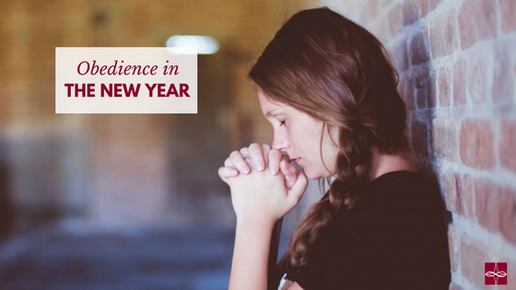

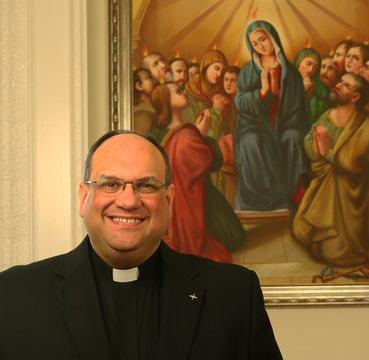




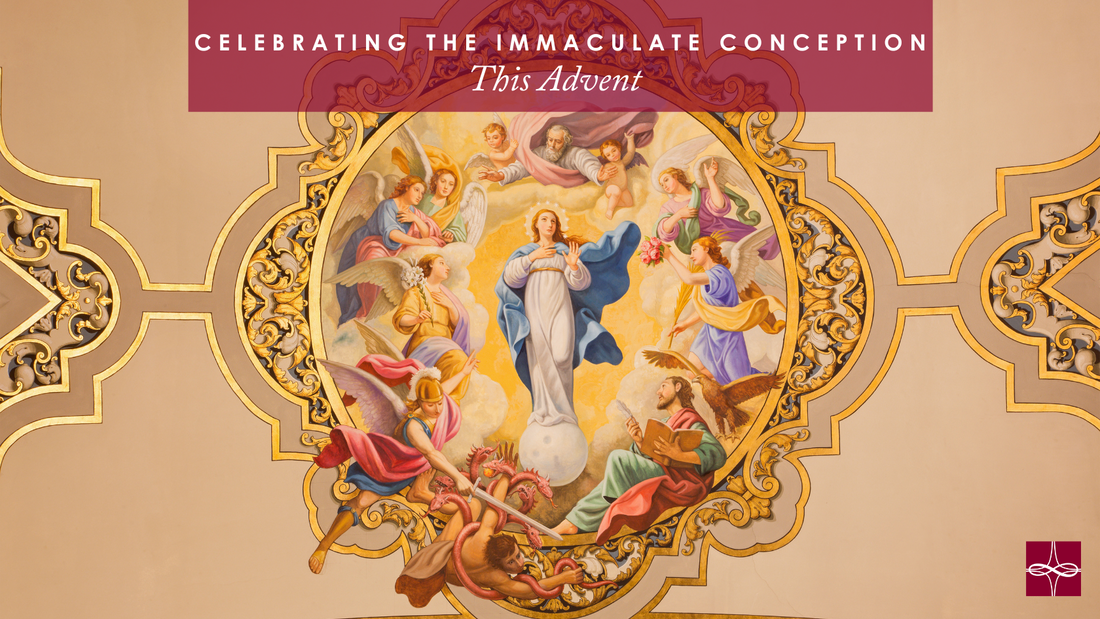

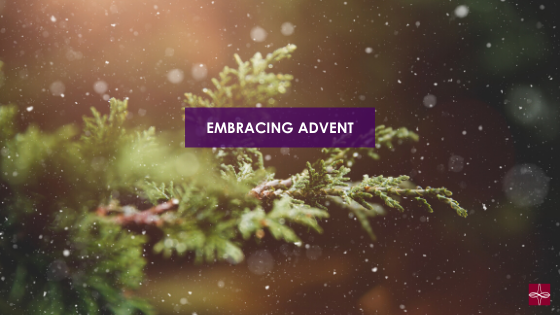

 RSS Feed
RSS Feed